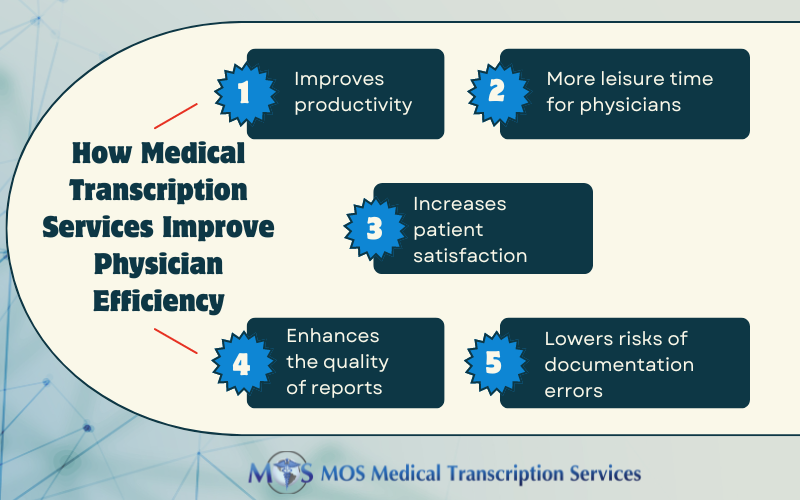Electronic Health Records (EHRs) are designed to ensure accurate patient documentation. However, many physicians are facing challenges with the EHR/EMR system and feel that it affects their efficiency. They find that entering data into the system during the patient encounter detracts from the quality of care. Despite the benefits that EHRs provide, there are issues that need to be addressed.
Table of Contents

Impact of the EHR on Physician Productivity
An article published by the National Library of Medicine highlights the rise of physician burnout in the United States, particularly in primary care, with Electronic Health Records (EHRs) playing a major role. The article discusses how EHR-related issues such as data entry, complex usability, electronic messaging, cognitive load, and time demands are causing burnout among physicians. The shift from paper-based records to EHRs has led to increased documentation requirements and additional clerical tasks for physicians, impacting efficiency, effectiveness, and user satisfaction negatively.
According to a 2018 national survey conducted by The Harris Poll on behalf of Stanford Medicine, half of primary care providers (PCPs) feel that electronic health records (EHRs) hinder clinical effectiveness. Nearly half (44%) of PCPs see EHRs mainly as data storage, with only 3% recognizing their primary value in disease management and prevention. Ultimately, 59% of PCPs think that EHRs require a complete overhaul.
Here are Some of the Drawbacks of the EMR/EHR:
- Lack of user-friendliness is a major challenge with EHR systems. Given that physicians are not data entry experts, they find it difficult to manage the point-and-click templates.
- Secondly, using the software consumes their valuable time which would have otherwise spent on patient care. As they are busy typing information into the system during the office visit, they hardly find any time left for interacting with the patient. Overall, this has increased physician stress.
- Another important concern raised about the EHR is that it is causing errors in patient documentation. The software comes with drop-down lists which suggest the rest of word when the first letter is typed. Physicians are making mistakes by choosing the wrong suggestion, affecting the patient care and reimbursement.
- Hospital software and EHR are expected to be HL-7 compliant so that data is shared. Even hospitals that have set up EHR are finding it a challenge to generate and share documents so as to meet the goal of ‘continuity of care’.
How Medical Transcription Services Can Improve Physician Efficiency

- Improve productivity and efficiency: Medical transcribing improves physician productivity and efficiency by freeing up more time for other urgent tasks. Skilled medical transcriptionists can efficiently turn recorded dictation of physicians and nurses into written text that can be integrated into the EHR. With medical transcription services, healthcare providers can focus on their patients and deliver better care.
- More leisure time: With skilled medical transcriptionists handling EHR data entry, physicians will have adequate time. This will enhance their quality of life.
- Patient satisfaction: When physicians have help with EHR data entry, they can spend more time interacting and concentrating on their patients during visits, which will raise patient satisfaction levels.
- Enhances the quality of reports: Although EHR shortcuts were intended to increase physician productivity, they may have the opposite impact. By ignoring encounter-specific criteria, EHR shortcuts like copy-and-paste and the ability to automatically insert text blocks can cause note bloat and lower the usefulness of the documentation. If these features are not used appropriately, they might result in mistakes, make documentation hard to understand, and have an impact on patient care and financial results. Medical transcriptionists proofread transcripts and fix mistakes that might have occurred due to the careless use of time-saving EHR shortcuts.
- Lowers the risks of documentation errors: Inaccurate reporting of a patient’s condition, prescribed drugs, or any other patient-related information can have disastrous consequences for patient safety. Transcription services reduce the possibility of documentation mistakes that could lead to subpar treatment.
When outsourcing transcription, providers should ensure that they partner with a HIPAA-compliant transcription company. Such companies have stringent security measures in place and a data center that is constantly monitored by round-the-clock surveillance. Their security protocols protect both data at rest and data in motion.
Reaching out to a reliable medical transcription company is an ideal way for physicians to ensure quality documentation and get more time to focus on patient care. With EHR-integrated medical transcription support, physicians can experience the benefits of the system without compromising on efficiency and productivity.


